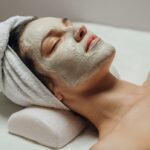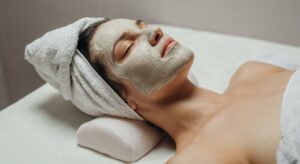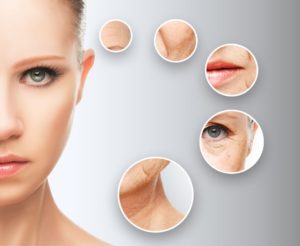You may have read the terms hydrating or moisturizing on skincare labels or in cosmetic advertisements. They may be used interchangeably in the beauty world, but there is a considerable difference between the two. Nevertheless, both serve as a key in providing skin with much-needed nourishment. But knowing the difference will help you make the right choice to target your skin’s specific needs.
Difference Between Moisturizing and Hydrating
Moisturizing or hydrating skincare products address the importance of ensuring your skin is getting the necessary water to fight dryness and dehydration, premature aging signs, and environmental damage. The difference lies in the mechanism of achieving the result.
Hydration is the water content level within the cells to keep them swell, plump and bouncy. When water flows out of the cells, they shrink and dehydrate, resulting in a dull complexion. The hydrating skincare ingredients help to regain the water content within the cells and make them look healthy and young.
On the other hand, moisturizing skincare products prevent water loss from the outermost layer of the skin and strengthen the skin barrier. A well-functioning barrier is necessary to prevent bacteria and harmful chemicals from entering the skin and keep the nutrients and moisture from leaving the skin.
Difference Between Dehydrated and Dry Skin
As you have got to know the difference between hydrating and moisturizing your skin, it is crucial to determine your skin condition to choose the one for yourself.
Dehydrated skin looks tight, dry, rough, or peeling. In addition, it often experiences sensitivity and redness. Harsh weather, poor diet, high caffeine consumption, climatic conditions, and inadequate water intake cause dehydrated skin.
In contrast, dry skin is something that does not produce enough oil. Sometimes your skin cells have a normal hydration level, but the surface remains dry. This is the skin condition you call dry, not dehydrated.
Dehydrated skin needs hydrating ingredients, and dry skin needs moisturization. Here are some of the common examples of both.
Hydrating Ingredients
Hyaluronic acid is one of the best-known hydrating ingredients. It restores the water content of dehydrated skin cells. Other examples may include propylene glycol, alpha hydroxy acids, urea, and glycerin. All of these components are humectants that serve as a magnet to draw moisture from deeper layers of skin or outside environment, fulfill the hydration requirement of cells, and keep the surface plump and healthy.
The hydrating ingredients not only hydrate the skin but smoothen out wrinkles and fine lines. In addition, they boost skin elasticity and dewy radiance.
Moisturizing Ingredients
Ceramides, dimethicone, shea butter, and coconut oil are good moisturizing ingredients to consider. Ceramides are lipids that are naturally present in the skin. As a result, they prevent dryness and irritation. Other moisturizing ingredients include petroleum jelly, cocoa butter, castor oil, and jojoba oil. These all nourish the skin barrier, improve its function, and lock in hydration.
Don’t Be Afraid to Moisturize and Hydrate Your Skin at The Same Time
Most of you might be experiencing dry and dehydrated skin conditions. They can use both hydrating and moisturizing ingredients to maintain their skin’s health. Be sure to apply the lightweight hydrating product first, such as a serum, then lock this hydration using a heavy moisturizer. Choosing the hydrating and moisturizing ingredients is crucial according to skin type. If unsure about your type, consult a skin care specialist or a dermatologist for recommendations.
*Information in this article is not medical advice and may not be factually accurate. It is intended for entertainment purposes only. Consult with a physician before attempting any tips in this blog post and to get the most up to date factual data about any procedure or treatment.














